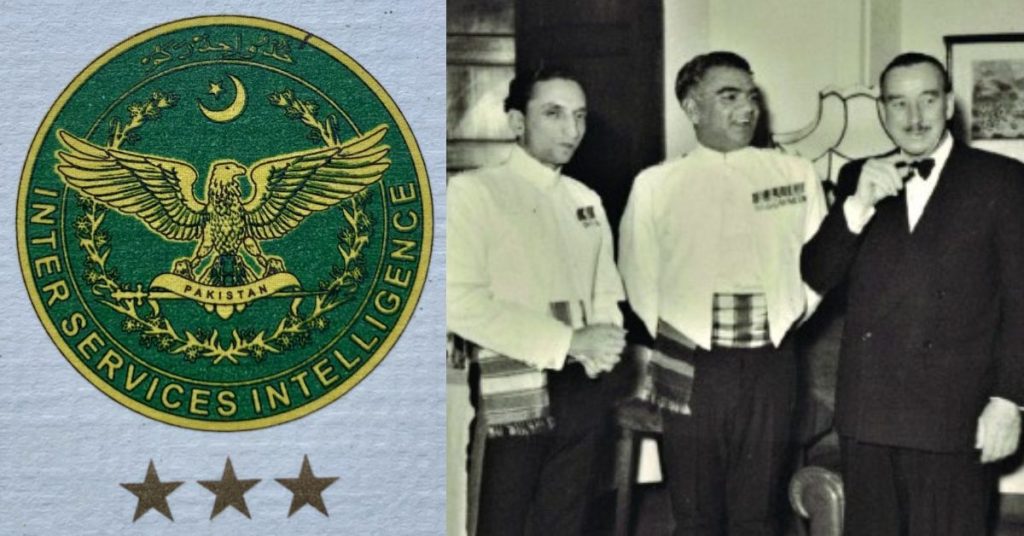
[ad_1]
After the partition of Pakistan, the country found itself with multiple challenges from civil and military leadership chaos to external security threats considering the Kashmir conflict with India. The most pressing threat was the Indian military and the lack of an intelligence web to counter the Indian strategy made Pakistan vulnerable on the eastern front.
Amid the national security concerns, Pakistan recognized the urgent need for a robust intelligence apparatus to counter imminent threats. Following the intelligence failure during the first Kashmir war in 1948, the armed forces formed an intelligence agency aimed at securing the country’s vital national security concerns and streamlining coordination among military and civilian intelligence efforts.
In this regard, the crucial task of forming a centralized intelligence agency was handed over to Major General Walter Cawthorn, one of 384 British army officers who were seconded to the Pakistan Army after the partition. Maj Gen Walter Cawthorn, initially enrolled in the Australian Army was probably one of the most experienced officers in Intelligence Planning and Operations in the British Indian Army.
Before the portion, with Brigadier rank, Cawthorn took charge of the Middle East Intelligence Centre, at the start of the Second World War, and later on 15 August 1941, became the Director of Military Intelligence at the General Headquarters, in India. He worked with Peter Fleming, the elder brother of Ian Fleming who created the spy, James Bond. From 1942 to the end of the war, Peter Fleming was based in New Delhi as head of the D Division, in charge of military deception and the ultra-secret double agent network in Burma and Southeast Asia.

Maj Gen Cawthon, also known as Bill Cawthorn served as the Deputy Chief of Staff of the Pakistan Army from 1948 to 1951 under Lieutenant General Ross C. McCay before leaving Pakistan in 1951. As the Indians geared up to launch their summer offensive of 1948 in Kashmir, a decision was taken most probably on the recommendation of McCay and his deputy to establish a Directorate of Forces Intelligence, later known as Inter-Services Intelligence (ISI).
Under his leadership, the ISI was established to address pressing challenges, particularly in the context of the ongoing Kashmir conflict. Cawthorn’s influence laid the groundwork for an agency that would evolve into a crucial institution in Pakistan’s defense and intelligence framework.
Following the approval of an intelligence agency from the Defence Council, headed by Liaquat Ali Khan, Col Syed Shahid Hamid was selected as the first Director of Forces Intelligence by Maj Gen Cawthon to raise and develop the organization from scratch. Before this assignment, Col Shahid successfully raised 56 battalions of the Pakistan National Guard (PNG) on the wishes of the Quaid-e-Azam under an Ordinance promulgated by him only three months after Independence.

The intelligence agency’s headquarters was established in Karachi with military staff from all three services and the civilian staff (including women) recruited through the Public Services Commission. The first major task of the newly established directorate was the Kashmir conflict, which was at its height at that time, and the role was given to Maj Sahabzada Yaqub Khan.
One of the early stars of the organization was Major Muhammad Zaheeruddin who was posted from Kuldana where he was commanding the Army School of Military Intelligence. Unfortunately, Zaheer’s subsequent career came to a tragic end because he was posted as the Director of Military Intelligence at GHQ and fell into disgrace as he was unaware of the involvement of some officers in what came to be known as the 1951 Rawalpindi Conspiracy Case. Zaheer committed suicide because he could not take the shame of being removed from his post and being demoted.
After serving two years to form the organization, Col Shahid was rewarded with the command of the famous Peshawar Brigade and transferred from the Directorate in the middle of the 1950s. He was replaced by a friend and senior, PA-13 Brig Mirza Hamid Hussain.

In 1951, Maj Gen Cawthorn, the mind behind ISI, left the Pakistan Army and migrated to Australia where he was appointed as the Director of the Joint Intelligence Bureau. In 1954, he came back to Pakistan as Australia’s High Commissioner and both he and his wife Mary remained good friends of the Shahid Hamids.
ISI earned its name in 1979, during the Soviet war in Afghanistan when its growing importance was felt, as it worked hand in glove with the CIA to support the mujahideen resistance in Afghanistan. Since that time, the ISI has projected its influence across the region with its involvement in Indian Kashmir and post-9/11 geopolitics in the region.
The article is based on information from the book “Early Years of Pakistan” by Maj Gen Syed Shahid Hamid and the book “Faith, Unity, Discipline – The Inter-Service-Intelligence (ISI) of Pakistan” by Hein Kiessling.
[ad_2]
Source link





